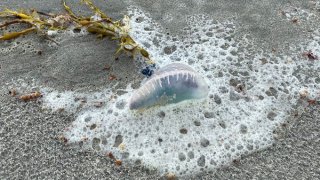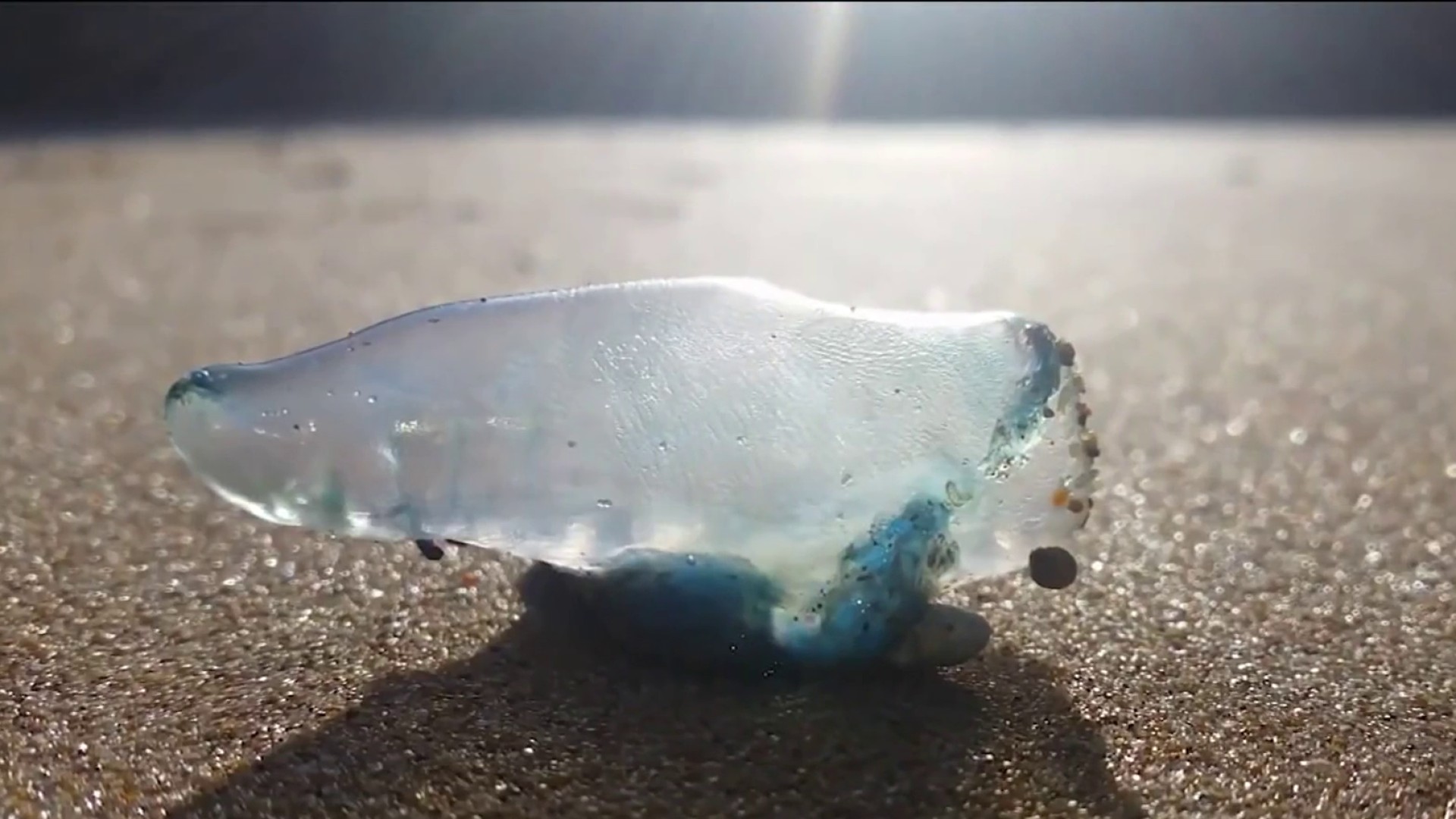
An image of a Portuguese man-of-war on a beach shared by the Rhode Island Dept of Environmental Management on Tuesday, July 11, 2023.
Potentially painful sea creatures have been washing up on beaches in New England, prompting warnings from public officials.
Last week, Portuguese man-of-wars were reported on south-facing beaches on Martha's Vineyard, and on Tuesday, the Rhode Island Department of Environmental Management reported that the creatures were spotted on three state beaches this week.
WATCH ANYTIME FOR FREE
Stream NBC10 Boston news for free, 24/7, wherever you are. |
There were also reports of man-of-wars washing up on at least one Cape Cod beach this week.
As experienced beachgoers may know from painful experience, Portuguese man-of-wars are jellyfish-like creatures that pack a shocking, sometimes numbing sting that can cause welts, even if they've been on the beach for weeks.
Get updates on what's happening in Boston to your inbox. Sign up for our News Headlines newsletter.

"While the man o’ war’s sting is rarely deadly to people, it packs a painful punch and causes welts on exposed skin," the National Ocean Service says.
Anyone who finds one of the puffed-up animals should avoid touching it, especially its tentacles.
The jellyfish are traveling up the coast along the Gulf Stream, according to Rhode Island officials, who said purple flags were being flown to warn people of dangerous wildlife in the water.

